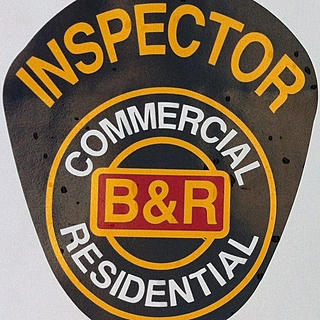5 Tips for a Successful Home Inspection Process
- Billy Jack Barrow
- Jul 11
- 3 min read
Updated: Jul 12
Buying a home is one of the biggest decisions you will ever make. It can be exciting, but it can also be overwhelming. One crucial step in the home-buying process is the home inspection. This is your opportunity to uncover any hidden issues before you finalize the purchase. A successful home inspection can save you time, money, and stress. Here are five tips to help you navigate this important process.
Understand the Purpose of a Home Inspection
Before you dive into the inspection process, it is essential to understand its purpose. A home inspection is a thorough examination of a property's condition. It helps identify any potential problems, such as structural issues, plumbing problems, or electrical hazards.
Knowing what to expect can ease your mind. The inspector will look at various aspects of the home, including:
Roof and attic: Checking for leaks or damage.
Foundation: Looking for cracks or signs of settling.
Plumbing: Inspecting pipes, water pressure, and drainage.
Electrical systems: Ensuring the components are functional.
Understanding these areas can help you ask the right questions during the inspection.
Choose the Right Inspector
Not all home inspectors are created equal. Choosing the right one can make a significant difference in the quality of the inspection. Look for an inspector who is licensed and has good reviews.
Here are some tips for selecting the right inspector:
Ask for recommendations: Talk to friends, family, or your real estate agent for suggestions.
Check credentials: Ensure the inspector is certified and has experience.
Recommendations: Ask for recommendations from friends or your Realtor.
A qualified inspector will provide a detailed report, helping you make informed decisions.
Be Present During the Inspection
Being present during the home inspection is crucial. It allows you to see the issues firsthand and ask questions as they arise.
Here are some benefits of attending the inspection:
Direct communication: You can ask the inspector about specific concerns.
Visual understanding: Seeing issues in person can help you understand their severity.
Learning opportunity: You can gain valuable knowledge about the home’s systems and maintenance.
If you cannot attend, consider asking a trusted friend or family member to go in your place. This can give you peace of mind that the inspector performed their duties.
Know What to Look For
While the inspector will do the heavy lifting, it helps to know what to look for during the inspection. Familiarize yourself with common issues that can arise in homes.
Here are some red flags to keep an eye out for:
Water stains: These can indicate leaks in the roof or plumbing.
Cracks in walls or ceilings: These may signal foundation issues.
Electrical Problems: This can pose safety hazards.
If you notice any of these issues, bring them up with the inspector for further evaluation.
Review the Inspection Report Carefully
After the inspection, you will receive a report detailing the findings. Take the time to review it carefully.
Here are some tips for understanding the report:
Look for major issues: Focus on significant problems that could affect your decision to buy.
Consider repair costs: Research how much it would cost to fix any issues found.
Ask questions: If something is unclear, don’t hesitate to reach out to the inspector for clarification.
Understanding the report will help you negotiate repairs or price adjustments with the seller.

Final Thoughts
Navigating the home inspection process can feel daunting, but it is a vital step in buying a home. By understanding the purpose of the inspection, choosing the right inspector, being present during the process, knowing what to look for, and reviewing the report carefully, you can ensure a successful home inspection.
Remember, this is your opportunity to protect your investment and make informed decisions. Happy house hunting!







Comments